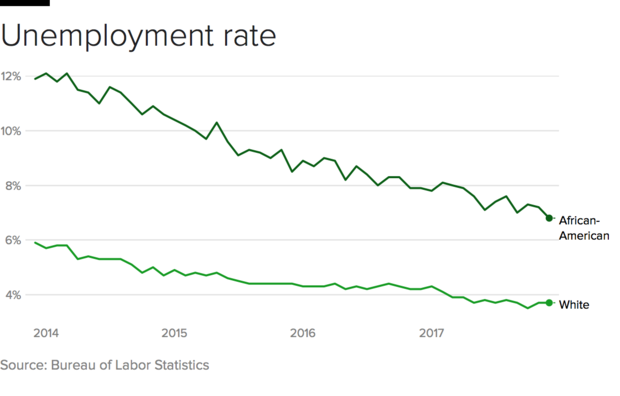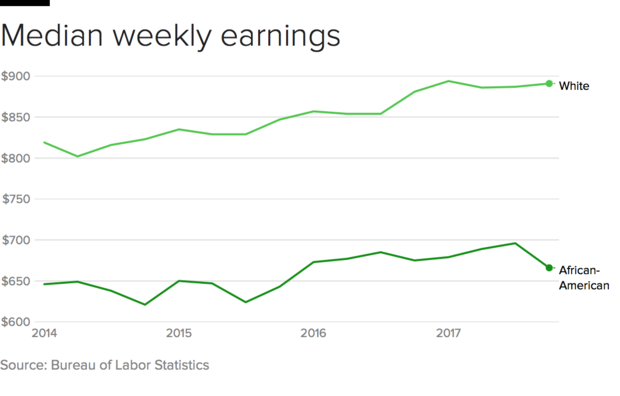Trump v. Jay-Z on the job market facing blacks: Who's right?
After President Donald Trump earlier this month noted that African-Americans are reaping the benefits of the nation's improved job market, hip-hop artist Jay-Z took issue, saying Mr. Trump "was missing the whole point." That sparked another volley from the president, who on Sunday tweeted, "Somebody please inform Jay-Z that because of my policies, Black Unemployment has just been reported to be at the LOWEST RATE EVER RECORDED!"
Beyond generating tabloid headlines, the tussle raises questions about the actual state of the labor market for black Americans and how much credit is due to the Trump administration's economic policies.
Mr. Trump's assertion is correct that the jobless rate for blacks is at its lowest point since the government began tracking it in 1972. But the claim glosses over the fact that unemployment among African-Americans has been sinking for years, with the decline starting in 2011 under President Obama. Notably, black workers also have a long way to go until they reach parity with white Americans when it comes to things like pay and representation in upper management.
The jobless rate for black workers stood at 6.8 percent in December, more than three percentage points higher than the 3.7 percent unemployment rate for white Americans. When it comes to wages and wealth, blacks also remain behind whites and other groups.
"There are three major indicators of economic well-being by which we commonly measure racial economic inequality—median hourly wage, median household income and median family net worth or wealth," wrote Valerie Wilson, director of the Economic Policy Institute's Program on Race, Ethnicity, earlier this month. "If taken alone, each of these measures might lead you to draw dramatically different conclusions about the current state of racial economic inequality."
Black Americans may be returning to the workforce, but they continue to earn far less than the typical white worker. The median hourly wage for black workers is $14.92, compared with $19.79 per hour for white workers.
Black families also lag their white counterparts in household wealth. White families enjoy a median family net worth of $171,000, compared with just $17,600 for black families.
Wilson noted, "All of these measures of racial economic inequality show that we are a long way from remedying the vestiges of racism and the centuries of federal, state, and local policies that created these disparities."
Still, the drop in unemployment for black workers is clearly good news, showing that "a low unemployment rate disproportionately benefits the most disadvantaged groups," noted Dean Baker, senior economist at the Center for Economic and Policy Research, an independent think tank.
In other words, the black unemployment rate is improving because of overall trends toward a tighter labor market, not necessarily because of any specific policy from the Trump administration.
"Trump has had nothing to do with the decline in African-American jobless rates, or any other group's rates," Jared Bernstein, a senior fellow at the Center on Budget and Policy Priorities, told the publication Vox. "He's completely riding a trend he inherited."





